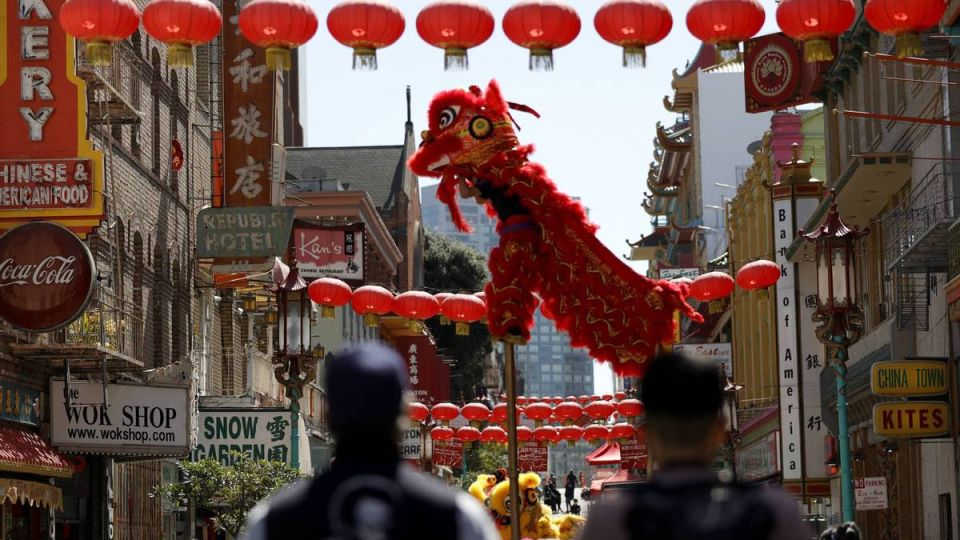February 4, 2022
SAN FRANCISCO – San Francisco, with a large Chinese American population and the oldest Chinatown in North America, has become the fourth city in California to formally apologize to Chinese immigrants and their descendants for past atrocities against the Chinese community.
The city’s Board of Supervisors unanimously passed a resolution Tuesday that apologizes for “structural and systematic racism” and violence targeting Chinese immigrants in the 19th and 20th centuries.
“The Chinese community in San Francisco has a deep and rich history but we have to acknowledge the harmful wrongs that our city has committed against this community,” said Supervisor Matt Haney, the chief sponsor of the resolution, in a statement.
“Although many of these injustices occurred long ago, it’s clear this discrimination continues to happen today. This apology and commitment to budget investments will not erase what has been done but is a necessary step for us to address the continued violence and discrimination that the Chinese community is still experiencing,” he said.
“While we cannot change the past, acknowledgement and reflection offer a path forward to address historical wrongs and make positive change,” said Cally Wong, executive director of the API Council, which is asking the city to commit to budget investments for API neighborhoods and cultural institutions.
Legislation passed by San Francisco follows similar actions taken by the California cities of Antioch, San Jose and Los Angeles last year. All the cities shared a similar history of mistreating Chinese immigrants.
Antioch used to be a “sundown town” for Chinese immigrants who built tunnels to get home from work because they were banned from walking the streets after sunset.
In San Jose, one of the largest Chinatowns was burned to the ground by arsonists in 1887 after the City Council unanimously declared the site a public nuisance. The burning led to the destruction of homes and businesses and the displacement of 1,400 members of the Chinese community.
The 1871 Los Angeles Chinese massacre resulted in the deaths of 18 Chinese men and is believed to be the most lethal example of racial violence ever recorded in the city.
Chinese laborers first arrived in San Francisco in the 1850s during the Gold Rush era. The city’s history of racism and discrimination against Chinese immigrants “touched every aspect of life, including employment, housing, education, and culture”, said the resolution.
Many of the discriminatory policies outlined in the resolution sought to undermine the progress of Chinese immigrants by banning them from schools and the levers of power.
In 1860, California’s Education Code prohibited Asian students from attending public schools with white students. A decade later, the San Francisco Unified School District closed the Chinese schools without providing any public school alternatives for Chinese students.
Additionally, the 1870 Consolidation Act barred anyone of Chinese descent to be employed in any government work. The board also passed more than a dozen ordinances from 1873 to 1883 cracking down on Chinese laundries, leading to the infamous riots of 1877, which left four people dead, and 20 laundry houses destroyed.
The resolution comes during what Haney described as a year “of overdue reckoning” for the nation when it comes to the treatment of Asian and Pacific Islander communities.
During the period from March 19, 2020, to Sept 30, 2021, Stop AAPI Hate, a national coalition aimed at addressing anti-Asian discrimination, received a total of 10,370 reports of hate incidents against Asian Americans across the US. Its latest data shows 1 in 5 Asian Americans have experienced a hate incident in the past year.
As of July 9, Stop AAPI Hate had documented 762 reported incidents of hate crimes in San Francisco, with 63 percent of the victims from the Chinese community. The city’s police data show the number of anti-Asian hate crimes soared from nine in 2020 to 60 in 2021, up 567 percent. The number of hate crimes against Asian Americans increased more than those targeting other races last year.
Los Angeles recorded the most hate crimes among large US cities last year, 615, a 71 percent increase, according to data gathered by the Center for Hate and Extremism at California State University, San Bernardino.
Incidents targeting black people in Los Angeles were the most common and jumped 91 percent over 2020, the study concluded. While black residents make up about 8 percent of the city’s population, they were the reported targets in 148 alleged hate crimes, a rate nearly triple their share of the population.
Among the 2021 incidents, 41 were anti-Asian. The cases involving Asians in Los Angeles marked a more than doubling over those in 2020 and reached levels not seen since the 1990s, according to the study.


